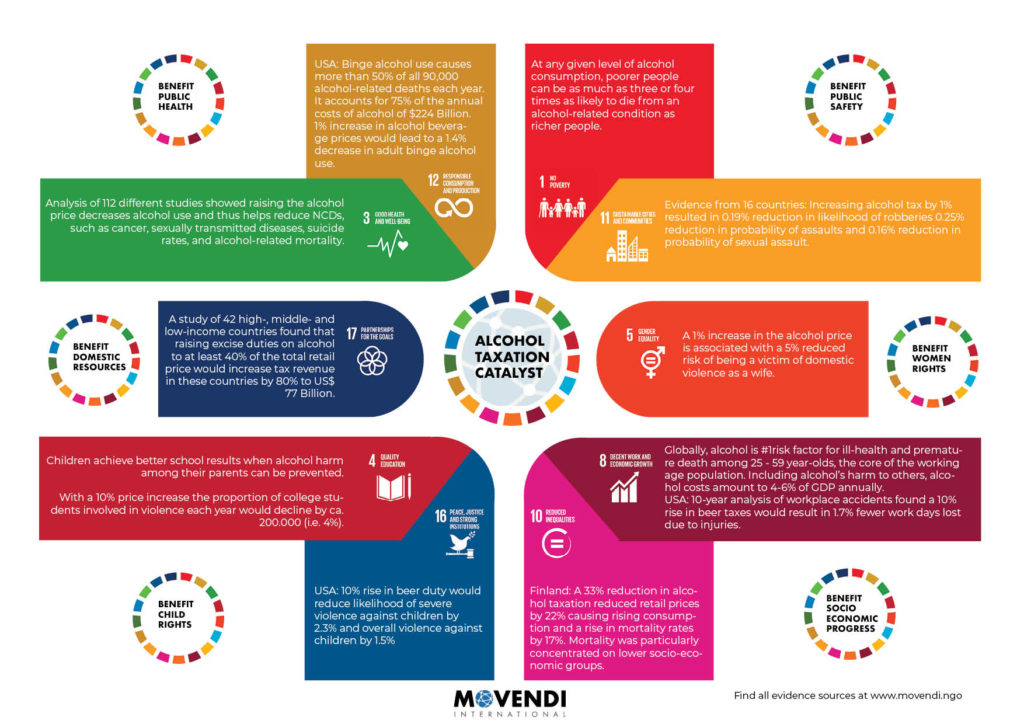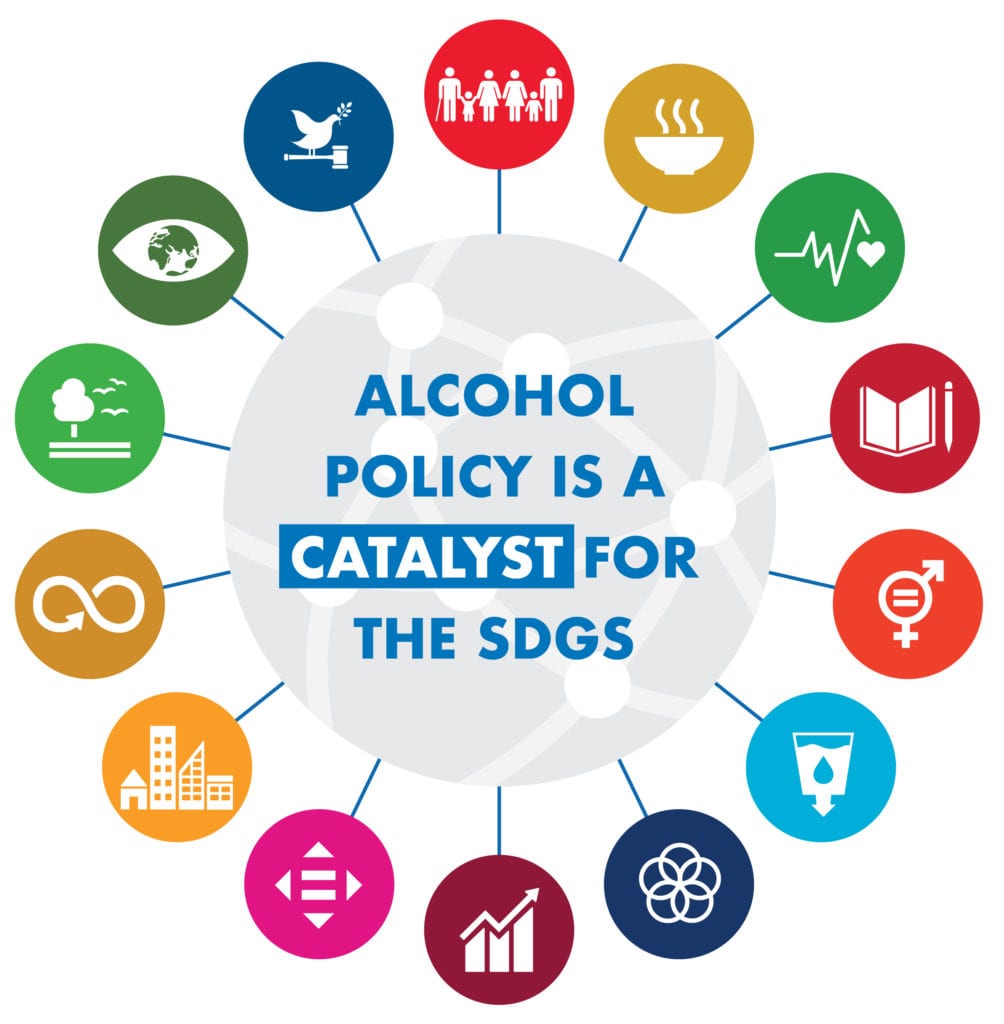Making alcohol policy a priority for reaching the sustainable development goals
The products and practices of the alcohol industry adversely sustainable development, hindering the achievement of 14 out of the 17 SDGs.
The High-Level Political Forum on Sustainable Development (HLPF) is the central United Nations platform for the follow-up and review of the 2030 Agenda for Sustainable Development and the Sustainable Development Goals (SDGs) at the global level. It is the apex of the architecture for follow-up and review of the 2030 Agenda established by the 2030 Agenda and General Assembly resolution 70/299.
The meeting of the HLPF in 2022 will be held from Tuesday, 5 July, to Thursday, 7 July, and from Monday, 11 July, to Friday, 15 July 2022 , under the auspices of the Economic and Social Council. This includes the three-day ministerial segment of the forum from Wednesday, 13 July, to Friday, 15 July 2022. The high-level segment of the Council will conclude with a final day on Monday, 18 July 2022.
The theme for the 2022 HLPF is “ Building back better from the coronavirus disease (COVID-19) while advancing the full implementation of the 2030 Agenda for Sustainable Development ”.
The HLPF will also review in-depth five Sustainable Development Goals:
- SDG 4 on quality education,
- SDG 5 on gender equality,
- SDG 14 on life below water,
- SDG 15 on life on land, and
- SDG 17 on partnerships for the Goals.
SDG 4, SDG 5, SDG 15, and SDG 17 are adversely affected by alcohol, as Movendi International’s report about alcohol as obstacle to development clearly shows.
One key topic for Movendi International is the financing for development agenda, where Movendi International is advocating for mainstreaming alcohol taxation as triple-win measure.
Employing evidence-based alcohol taxation reaps significant benefits across multiple SDGs. There is strong evidence that raising alcohol taxes is an effective strategy for reducing alcohol consumption and related harms.
- It reduces the burden of alcohol as obstacle to health and development for all
- It helps raise domestic resources.
- It promotes health and development by making funds available to be invested in government programs, services and campaigns.
And a brand new scientific study by Kristina Sperkova shows that most European countries fail to consider alcohol as obstacle to multiple other SDGs than health in the design of measures to achieve these goals.
To make matters worse, inaccurate language related to alcohol harm indicates a gap in understanding of the extent of the alcohol burden and the consequences for sustainable development. So does the choice of ineffective measures to reduce alcohol consumption.


